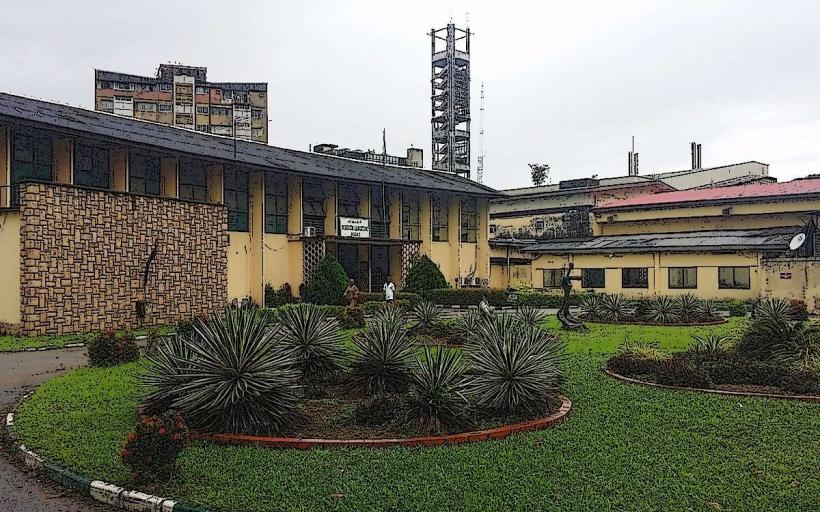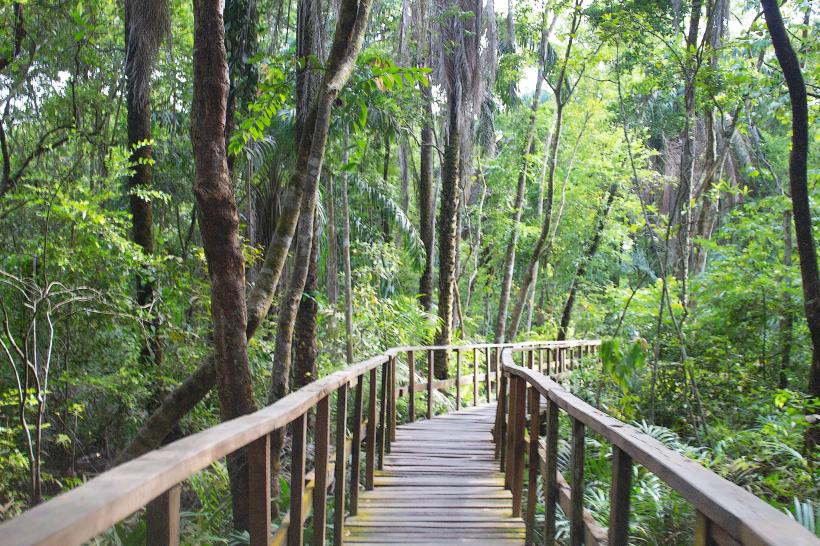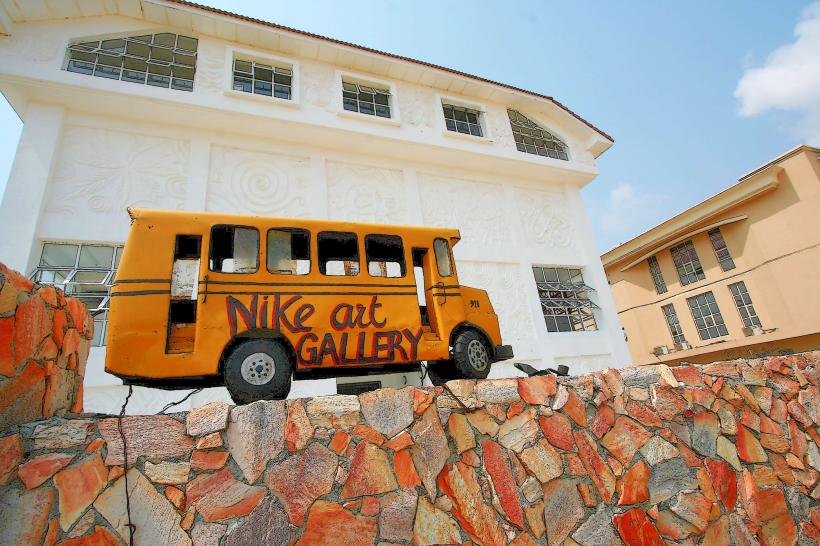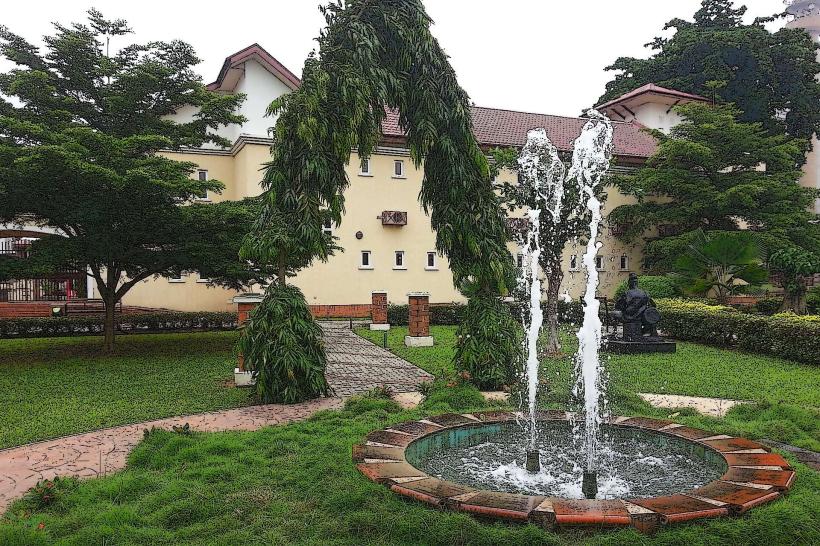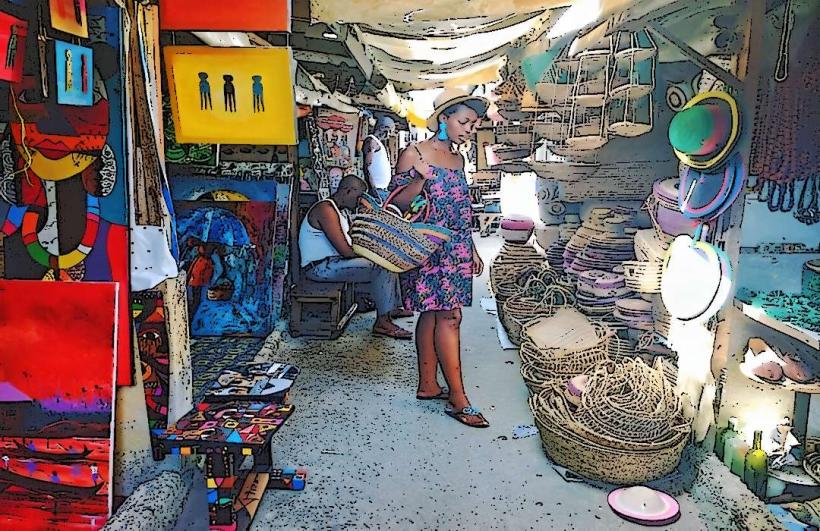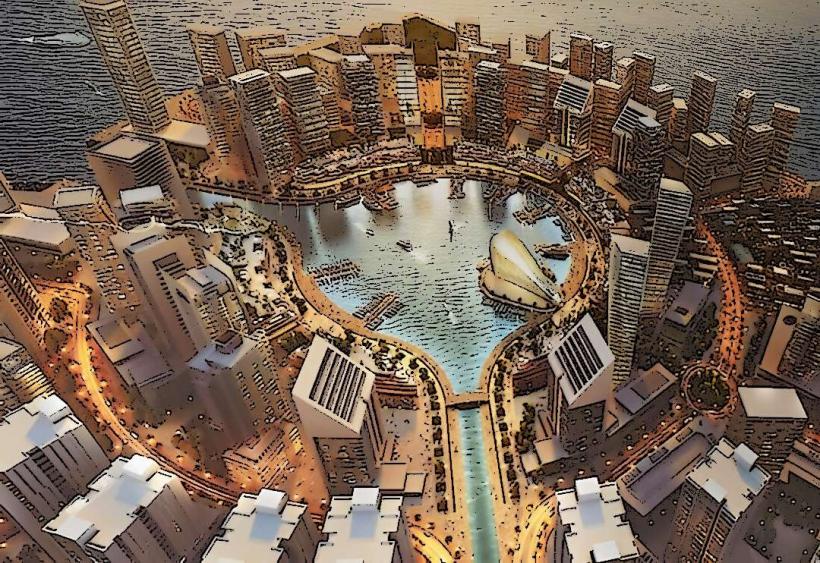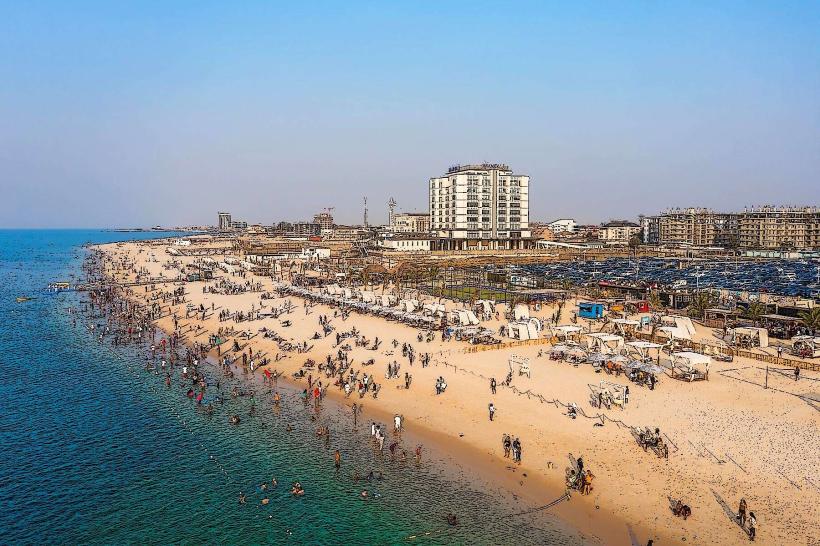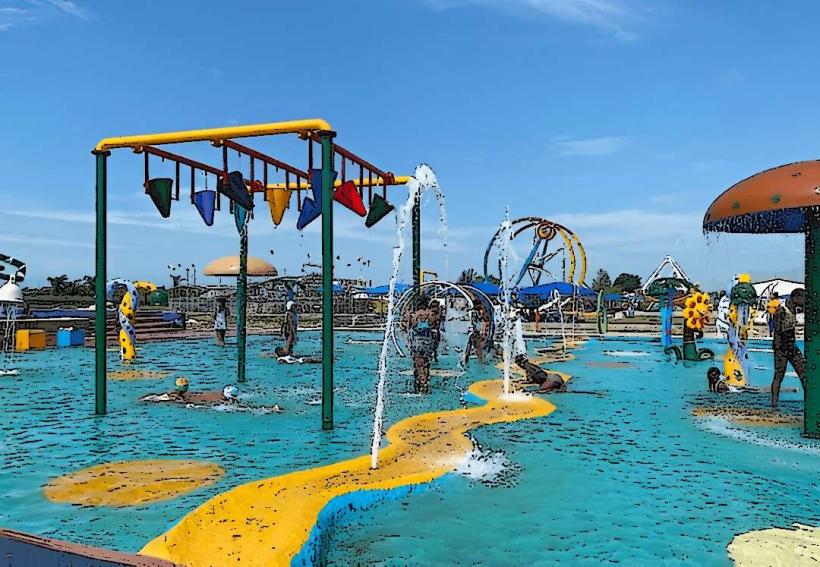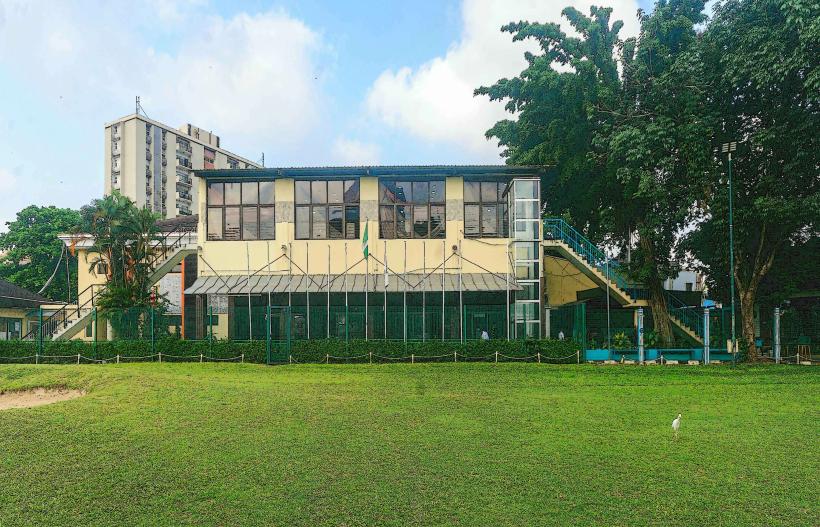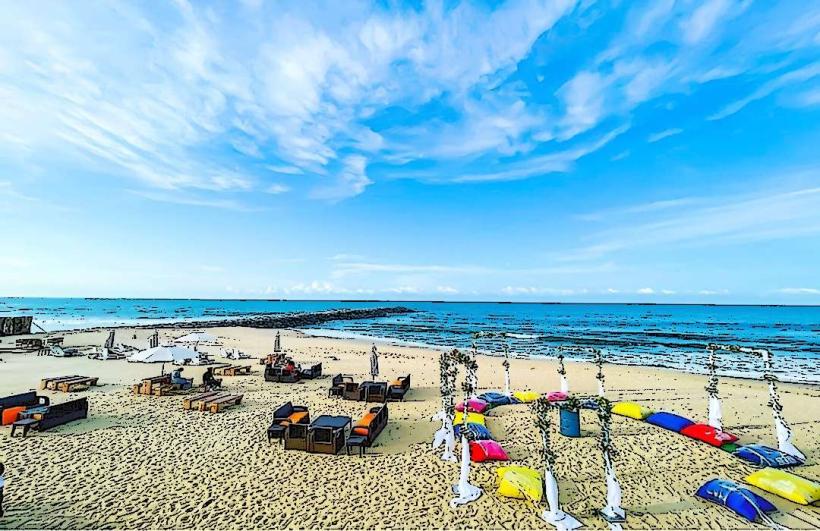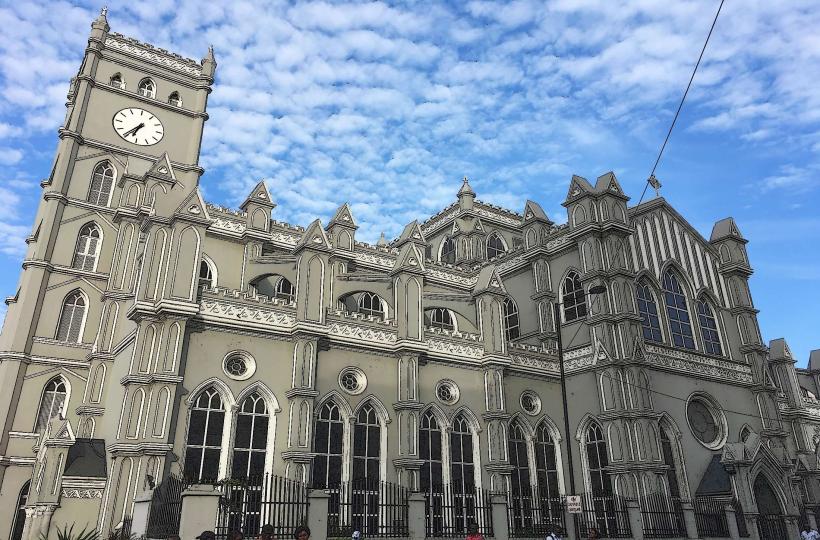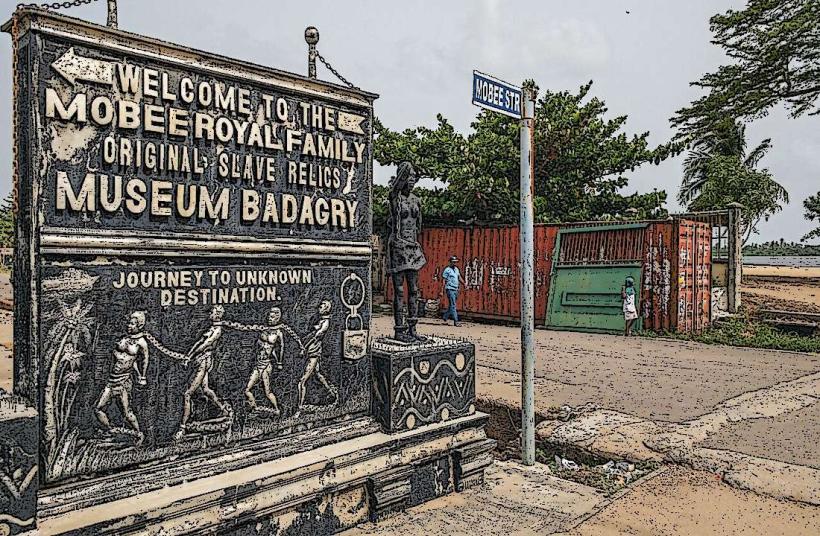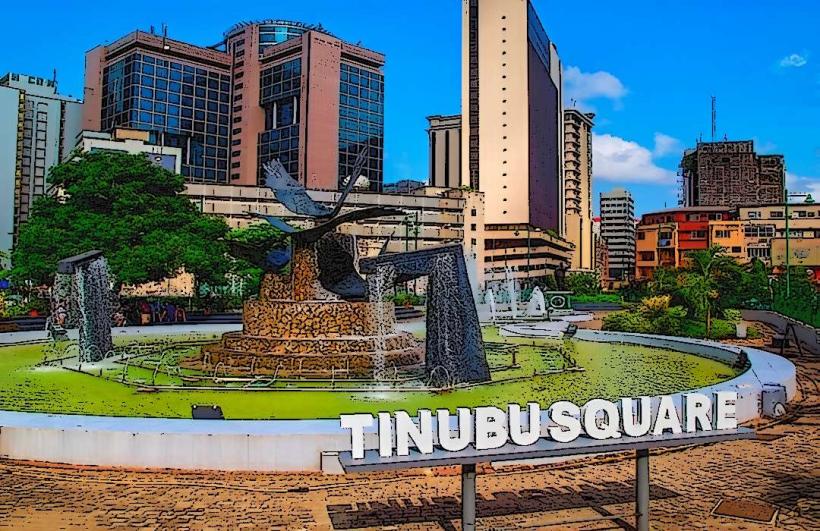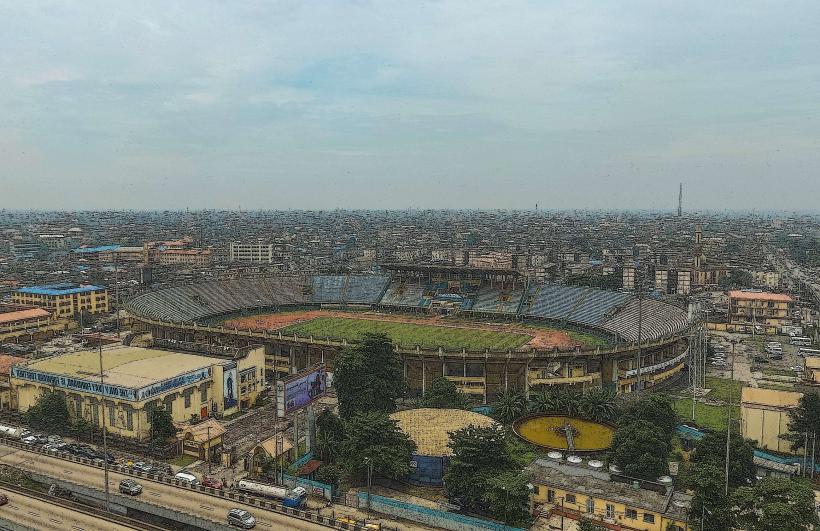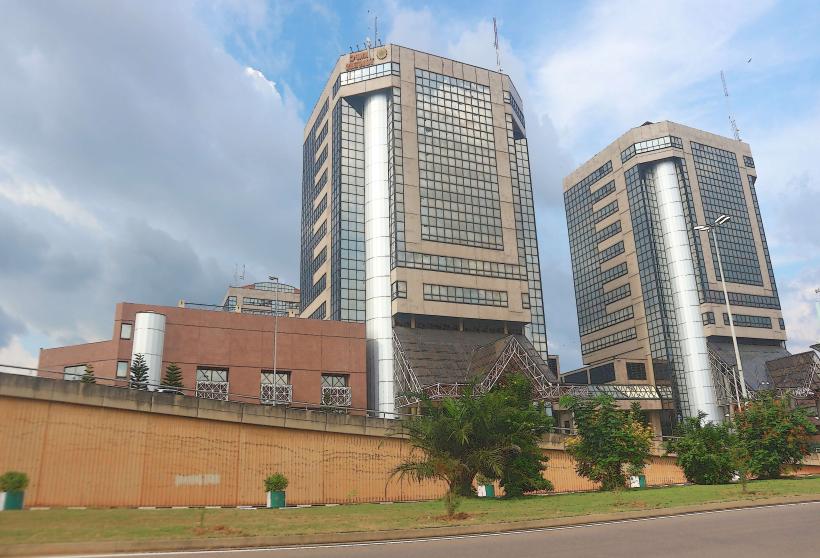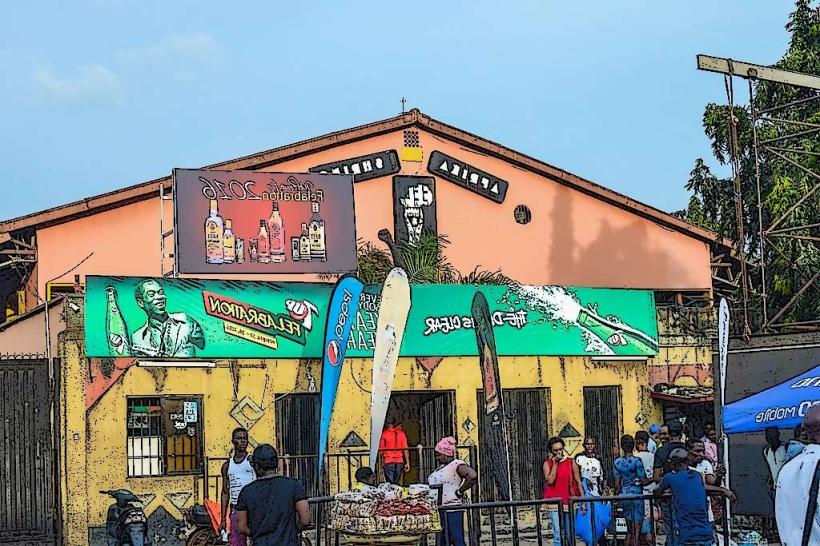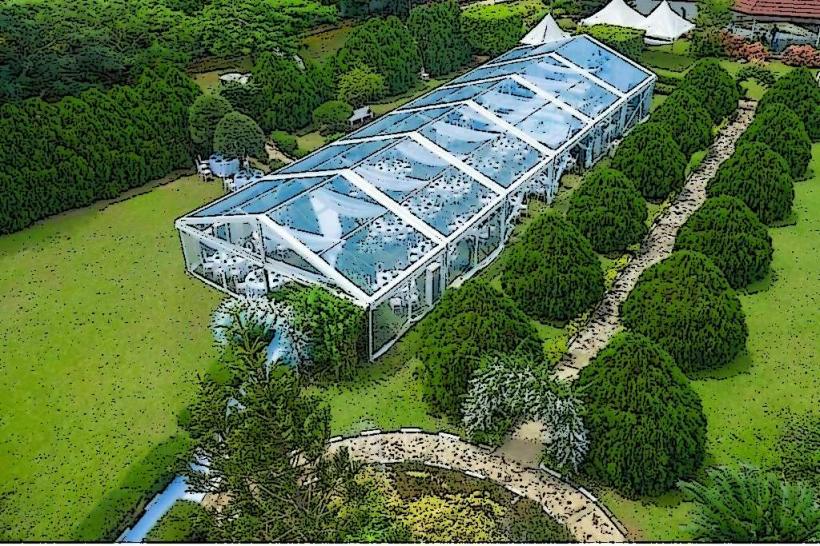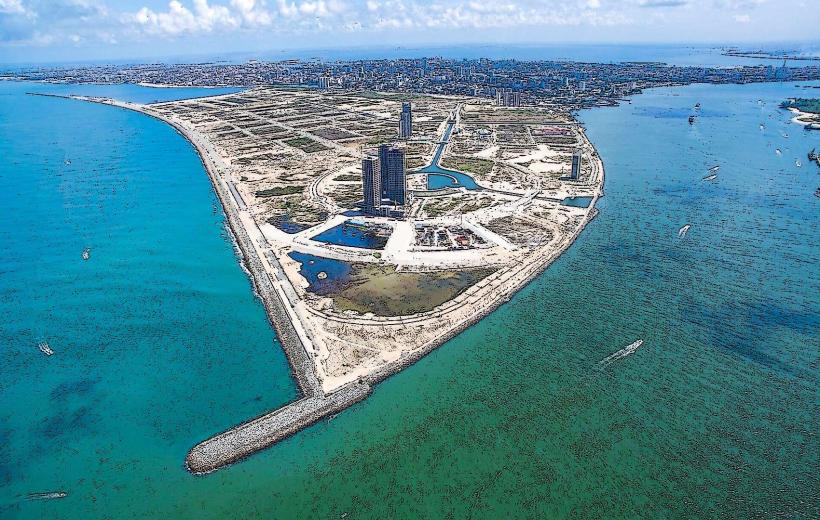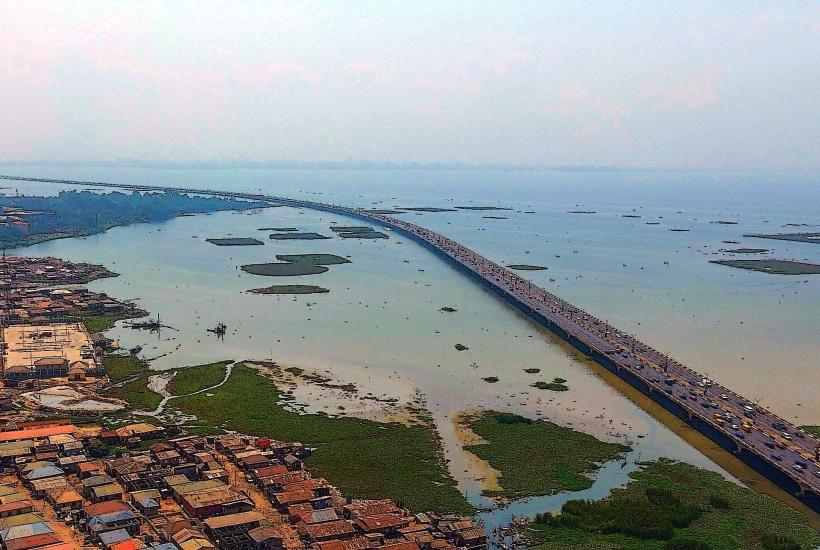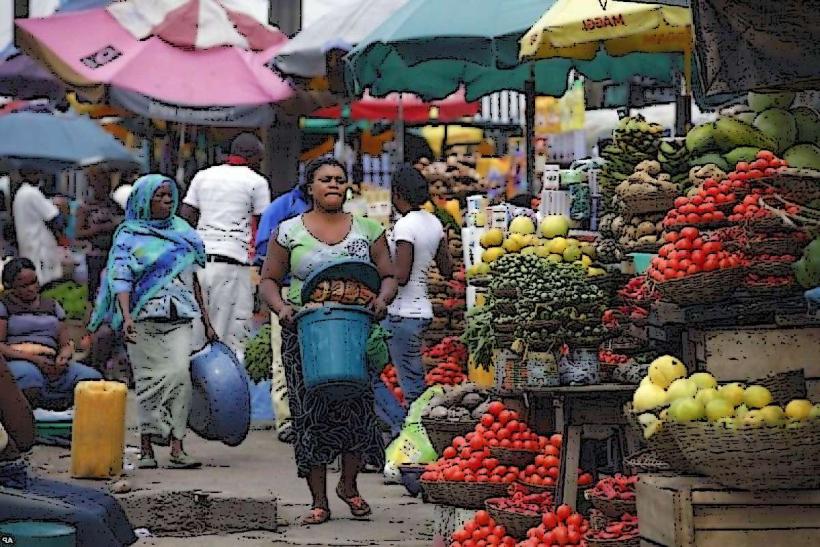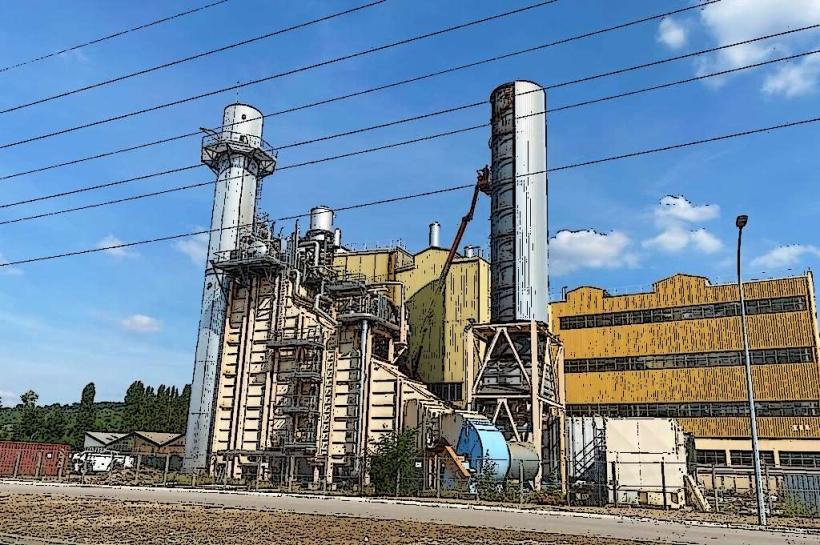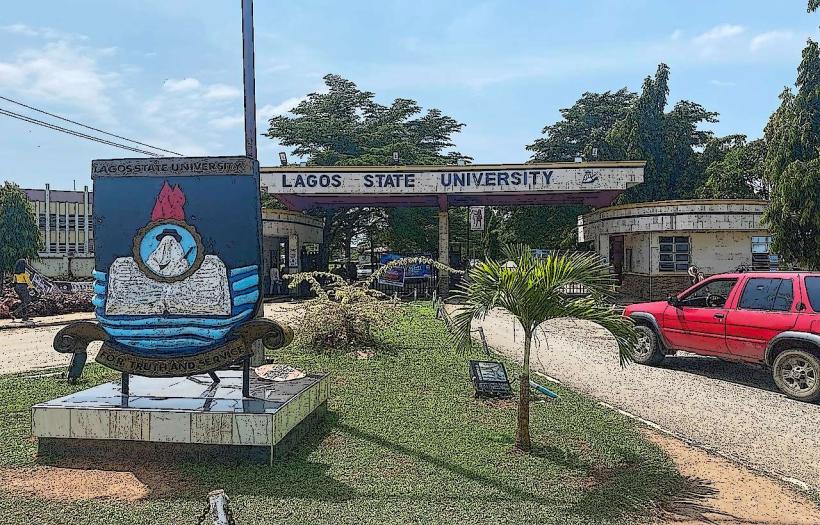Information
Landmark: Wole Soyinka National TheatreCity: Lagos
Country: Nigeria
Continent: Africa
Wole Soyinka National Theatre, Lagos, Nigeria, Africa
The Wole Soyinka National Theatre, often referred to simply as the National Theatre, is one of Nigeria’s most prominent cultural institutions. Located in Iganmu, Surulere, Lagos, the theatre stands as a symbol of Nigeria’s rich artistic history and cultural heritage.
History and Significance
Inception: The National Theatre was commissioned by the Nigerian government in the early 1970s under the regime of General Yakubu Gowon. The primary purpose was to host the 2nd World Black and African Festival of Arts and Culture (FESTAC 77). Construction of the theatre began in 1973, and it was officially completed and opened on September 30, 1976, by General Olusegun Obasanjo, who was then the Head of State. FESTAC 77 itself, held in Lagos, was a milestone event that brought together African and diaspora artists from all over the world.
Renaming: In July 2024, President Bola Tinubu renamed the National Arts Theatre to honor Prof. Wole Soyinka, a Nigerian playwright, poet, and essayist who was awarded the Nobel Prize in Literature in 1986. The renaming was a recognition of Soyinka’s monumental contributions to the literary world and the arts in Nigeria and globally.
Architectural Design
The Wole Soyinka National Theatre stands out for its distinctive and iconic architecture, which is a blend of cultural symbolism and functionality.
Design Inspiration: The architectural design of the National Theatre was influenced by the Palace of Culture and Sports in Varna, Bulgaria. Its unique design is often described as resembling a military cap, symbolizing strength, power, and unity. The striking circular shape, combined with sharp lines and angles, makes the building easily recognizable and a significant part of Lagos' skyline.
Size and Facilities:
Main Hall: The theatre’s main auditorium has a seating capacity of 5,000, making it one of the largest theatres in Nigeria. It is equipped with a collapsible stage, allowing it to host a variety of performances, including plays, operas, concerts, and dance recitals.
Cinema Halls: The National Theatre features two cinema halls, equipped for film screenings and other visual arts presentations. These halls cater to a wide range of audiences interested in film as an art form.
Conference and Exhibition Halls: The theatre also contains multiple spaces dedicated to conferences, seminars, and exhibitions, making it a multi-functional venue for a variety of cultural, educational, and professional events.
Cultural Spaces: The theatre has designated areas for rehearsals, performances, and arts education. These spaces are used by artists and cultural practitioners to develop new work and showcase their skills.
Cultural Role and Events
The Wole Soyinka National Theatre plays a pivotal role in fostering Nigeria's cultural scene. It acts as a hub for the performing arts, hosting a wide variety of events that promote both traditional and contemporary Nigerian culture.
Festivals: One of the key events held at the theatre is the National Theatre Festival of Unity (NATFU), an annual celebration of Nigeria’s artistic diversity. The festival features performances, music, dance, and exhibitions that showcase the talents of local artists and performers.
Performances: The theatre regularly hosts plays, musicals, operas, dance performances, and concerts. These performances feature both traditional Nigerian forms of art, such as drama, dance, and folk music, and contemporary art forms, reflecting the changing dynamics of Nigerian culture.
Workshops and Training: The National Theatre is not just a venue for performances, but also a center for arts education. It provides training programs for emerging artists in various fields, from acting and music to stage production and costume design. These workshops help nurture talent and contribute to the professional development of the local arts community.
Cultural Exchange: The theatre also plays a role in promoting cultural exchange by hosting international performances, exhibitions, and festivals that allow Nigerian audiences to engage with global arts and culture.
Location and Accessibility
The Wole Soyinka National Theatre is centrally located in Iganmu, in the heart of Lagos. The location is easily accessible by road, with major routes like the Lagos-Badagry Expressway and Apapa Road connecting the area to other parts of Lagos.
Address: National Theatre, Iganmu, Surulere, Lagos, Nigeria.
Public Transport: The theatre is located near the Costain Bus Stop, and visitors can easily access it by public buses, taxis, or private vehicles. It is also a short distance from Eko Bridge and Third Mainland Bridge, making it a convenient venue for both locals and tourists.
Visitor Experience and Facilities
Public Access: The National Theatre is open to the public, with a focus on promoting cultural awareness and artistic expression. Visitors can tour the venue, attend performances, or participate in workshops and events.
Amenities: On-site facilities include ample parking for visitors, food courts with local and international cuisines, and souvenir shops selling African arts, crafts, and memorabilia.
Events and Booking: Tickets for events at the National Theatre can be purchased through the official website or directly at the venue. The theatre is also available for event rentals, including corporate conferences, product launches, and private performances.
Significance in Nigerian Culture
The Wole Soyinka National Theatre stands as a beacon of Nigeria's rich cultural heritage, representing the country's commitment to preserving and promoting the arts. The theatre continues to be a vital space for Nigerian artists, offering a platform for the expression of diverse cultural narratives, both local and international. It is an iconic symbol of the country's artistic excellence and is integral to the cultural fabric of Lagos and Nigeria as a whole.
In addition to its function as a performance venue, the National Theatre serves as a community center where Nigerian and global audiences can experience the dynamic and evolving world of African art. Whether you're visiting for a concert, a theatrical performance, or an exhibition, the Wole Soyinka National Theatre remains a vital cultural institution in Nigeria.

